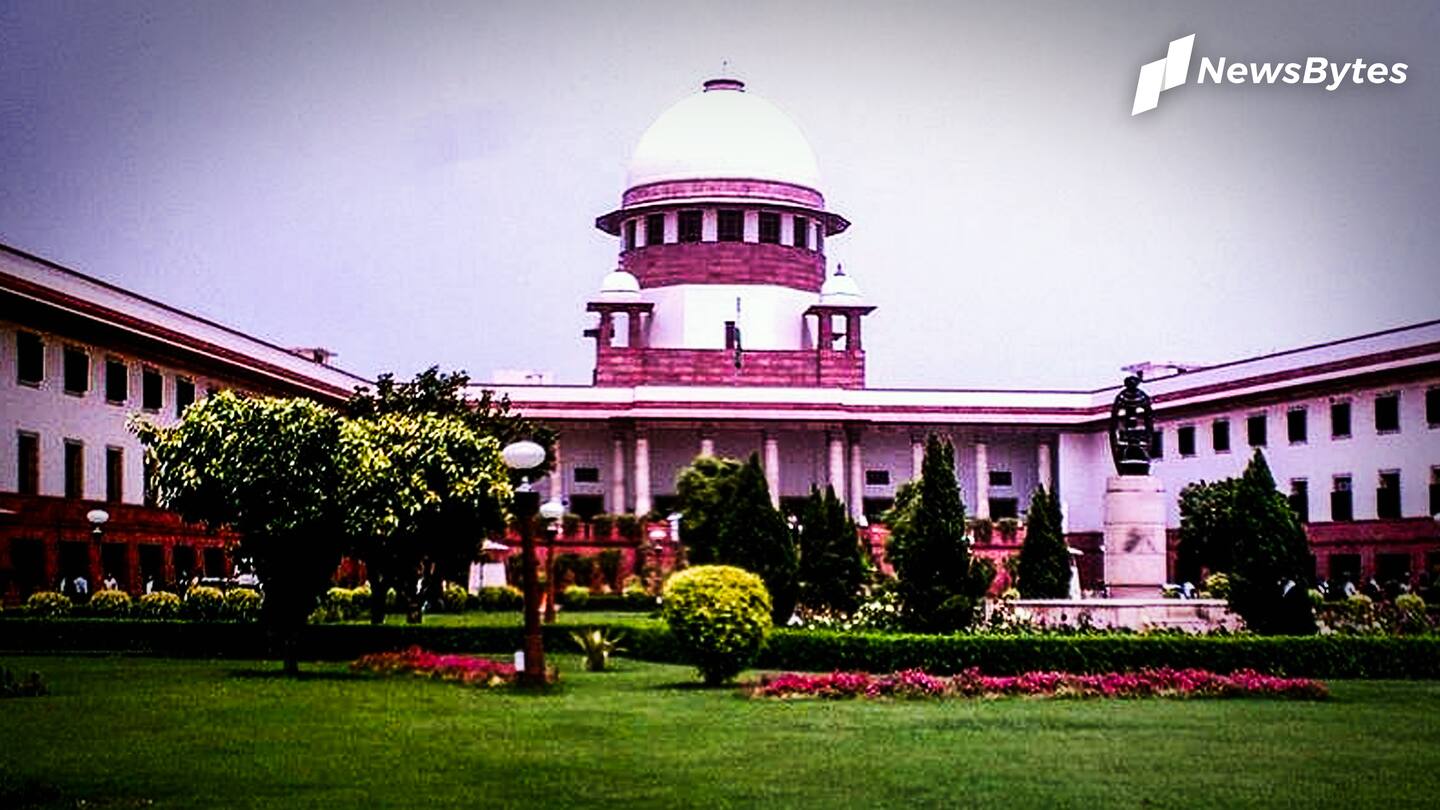
Before electronic media, regulate digital media: Centre urges Supreme Court
What's the story
The Supreme Court must think about laying guidelines for digital media before it takes similar steps for the electronic media, the Centre said on Thursday through an affidavit.
Saying digital media has a greater impact, the Ministry of Information and Broadcasting urged the top court to "take it up first," adding that there was enough framework for print and electronic media.
Here's more.
Context
Background: Sudarshan TV's controversial show sparked the conversation about regulation
The I&B Ministry's submission came after the apex court prohibited journalist Suresh Chavhanke from airing controversial views on his channel Sudarshan TV.
Through his "Bindas Bol" program, Chavhanke claimed he would expose how Muslims are infiltrating civil services.
As it restrained the channel from airing the episodes, a three-judge bench headed by Justice DY Chandrachud called the show "insidious" and "rabid."
Remarks
SC also lashed out at TRP race, reminded of ethics
Passing the judgment, the top court mentioned how news shows' obsession with TRPs leads to more sensationalism.
"Reputations can be damaged; an image can be tarnished. How to control this? The state cannot do this," SC remarked.
The bench also noted that during TV debates, anchors speak for most of the duration, and said there's a pressing need for journalists who are fair.
Series of events
SC hinted at regulations for mainstream media, Centre disagreed
As it adjourned the matter for Thursday, the apex court announced it was pondering over framing guidelines for electronic media. The court suggested it would seek the help of distinguished persons in framing these rules.
But the SC's plan didn't sit well with the Centre, which urged the court to not lay "any further guidelines for rest of mainstream media."
Affidavit
Government urged the top court to appoint Amicus Curiae
The I&B Ministry asked SC to confine the matter to only Sudarshan TV, adding, "This Hon'ble Court may not undertake the exercise of laying down any further guidelines with or without the appointment of an Amicus or a Committee of persons as Amicus."
"The issue of balancing freedom of speech and responsible journalism has already been governed by statutory provisions and judgments," Centre added.
Submission
Centre wanted freedom for mainstream media, regulation for digital media
Further, the Ministry said that if the top court wants to frame guidelines, it must take digital media into account first.
"Digital media has faster reach, potential to become viral due to apps like WhatsApp, Twitter, and Facebook. Digital media has a serious impact. There is no justification to confine this exercise only to mainstream electronic media," read the affidavit.